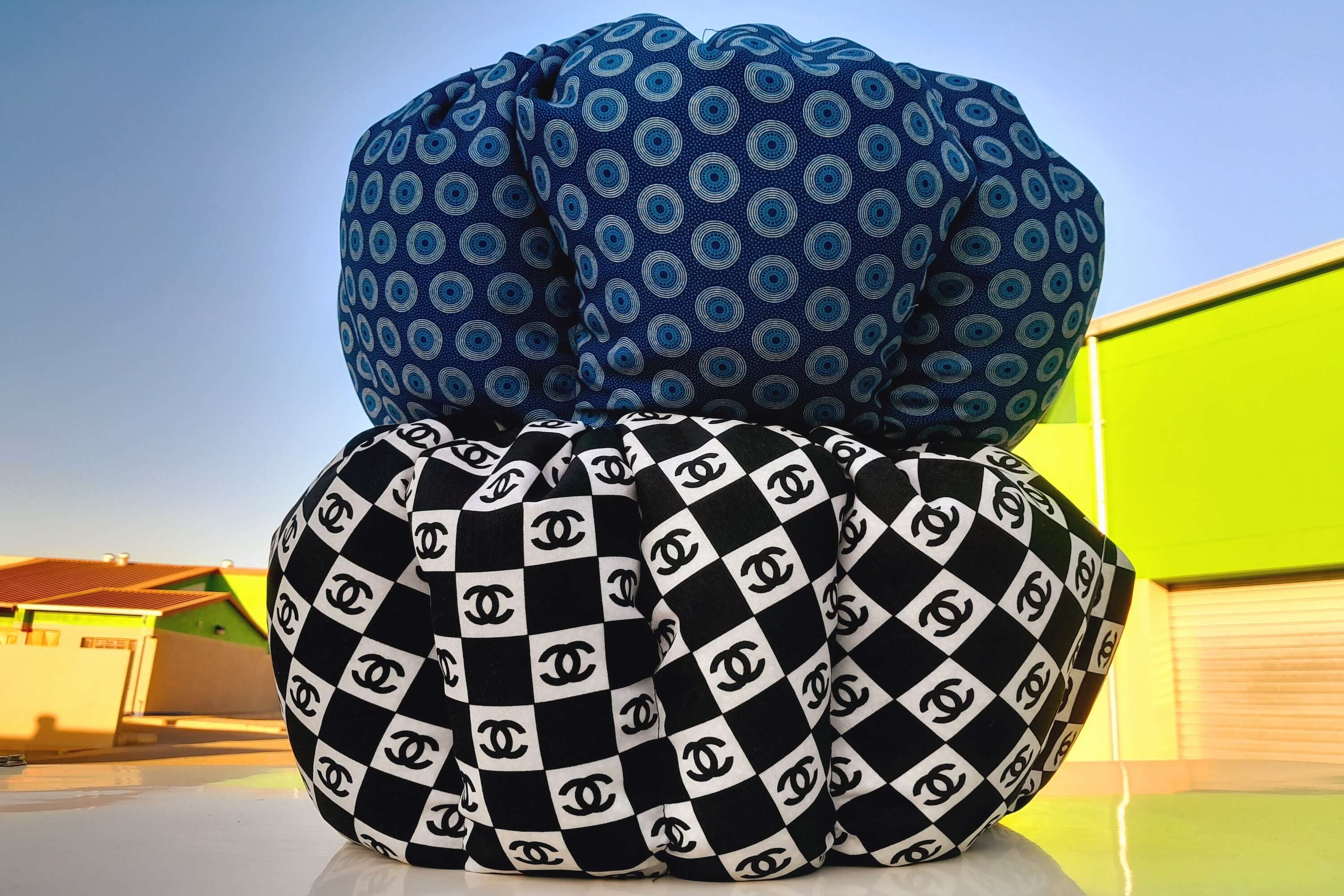
In response to rolling electricity blackouts and alarming shack fires ripping through townships in South Africa, Sarah Collins first developed the Wonderbag™. This cloth bag has a surprising super power – cooking food without electricity or fire! Now this simple idea is being replicated in Namibia under the name Namibag.
The physics behind these bags is simple, yet the idea is often met with scepticism. How can a puffy cloth bag cook food? The secret is insulation – when a pot that is already at cooking heat is transferred into an insulated bag, the heat cannot escape. The trapped heat continues to cook the food.
The implications of this simple idea are far-reaching, especially for meals that are usually cooked for a long time (e.g., stews). If instead of keeping the pot on low heat for an hour or two, you only used the heat for 15 minutes before placing the pot in the bag, the amount of electricity or firewood you need to cook that meal is greatly reduced.
Reducing energy costs not only saves the consumer money, but also saves the environment. This humble cooking bag is part of the global fight to reduce greenhouse gas emissions by cutting our use of fossil fuel-powered electricity, gas, or wood.
In rural areas or townships near the outskirts of towns, people need to continuously collect firewood for cooking. Less cooking time means less wood needed to burn each day, saving each household time while reducing the rate of deforestation. This opens the possibility of using the Wonderbag™ concept to generate carbon credits that would fund the production of more bags at a lower cost to the end user.
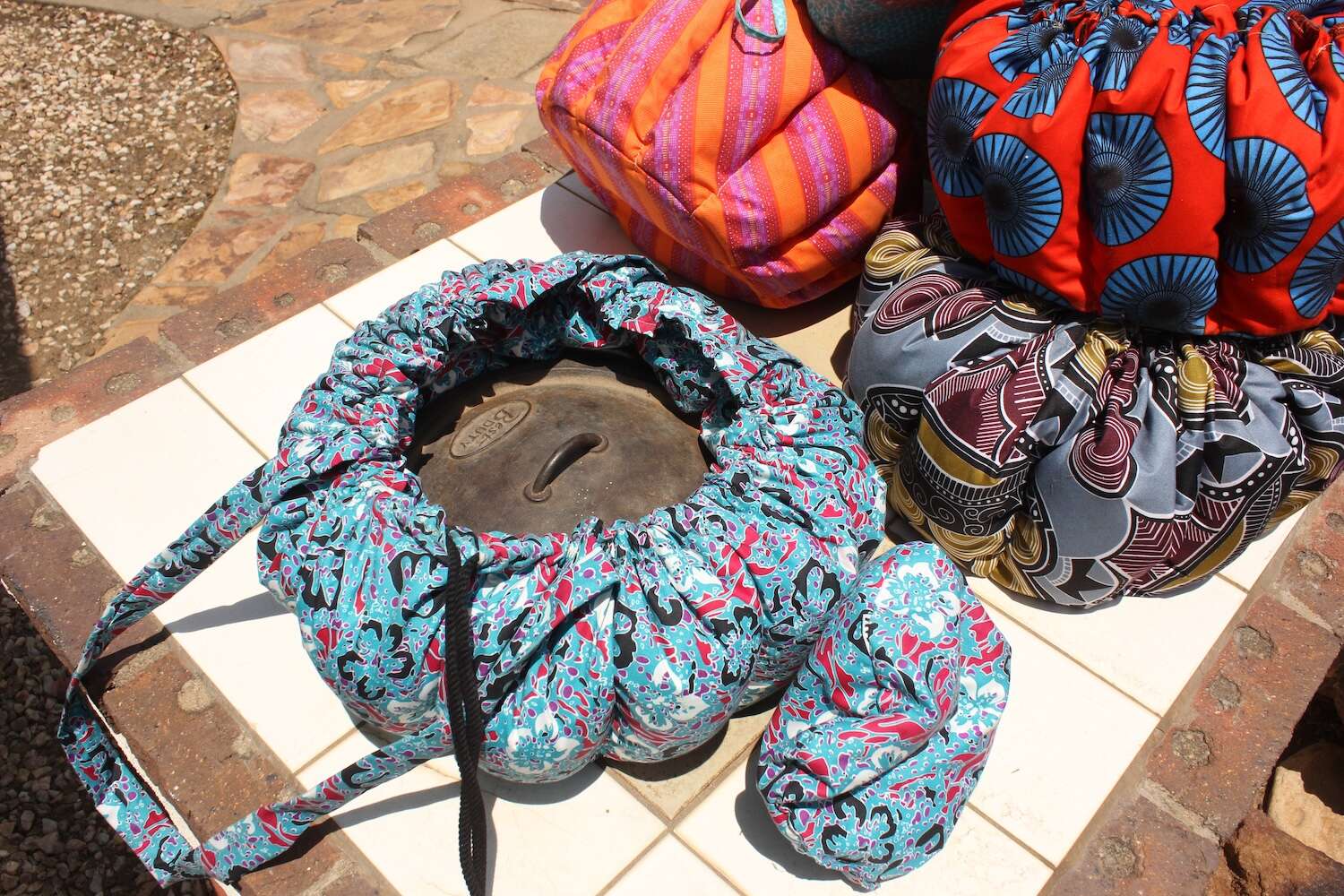
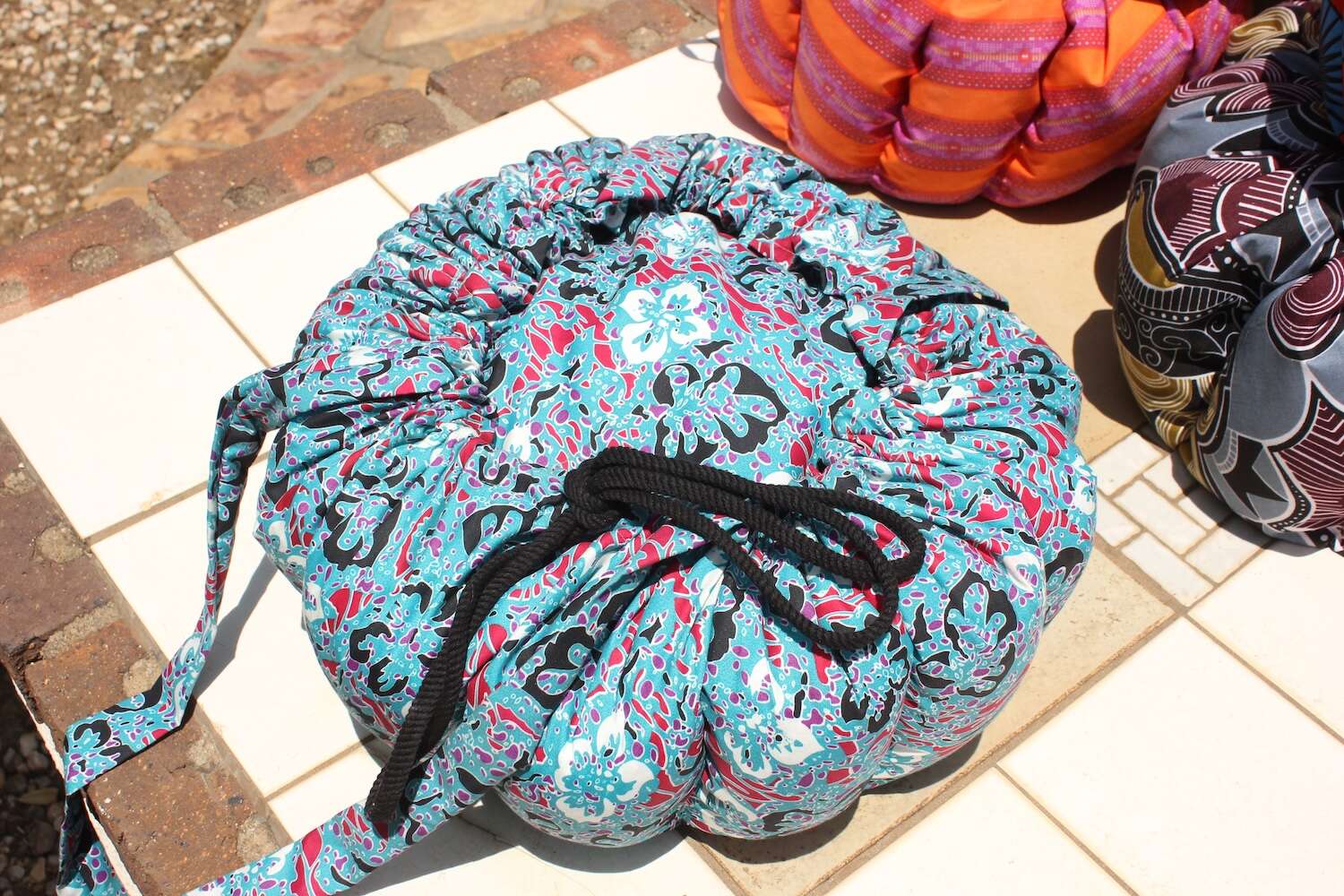
Upon hearing about the Wonderbag™ in South Africa, Windhoek-based entrepreneur Albertina Amupolo decided to try her hand at making a similar bag. She used her first bag at home and found that it worked perfectly. After a few tweaks to the design, she started producing her own Namibag for sale in Windhoek.
Whenever I explain to people how the bag works, they immediately want to buy one!
says Amupolo. Whether her customers live in apartment blocks, houses or shacks, they grasp how this simple bag can save them money.
Some of her customers include lodge chefs who use the bag to cook or keep their food warm for their guests. The beautiful prints that Amupolo uses for her bags adds African flair to food presentation. Using the same principle of insulation, these bags keep cold drinks cold, and could double as a fashionable container for the ‘sundowner’ drinks that are a popular part of many safaris.
While the Wonderbag™ has truly taken off in South Africa, with a team of women employed to make thousands of bags each year, the concept has yet to gain real traction in Namibia.
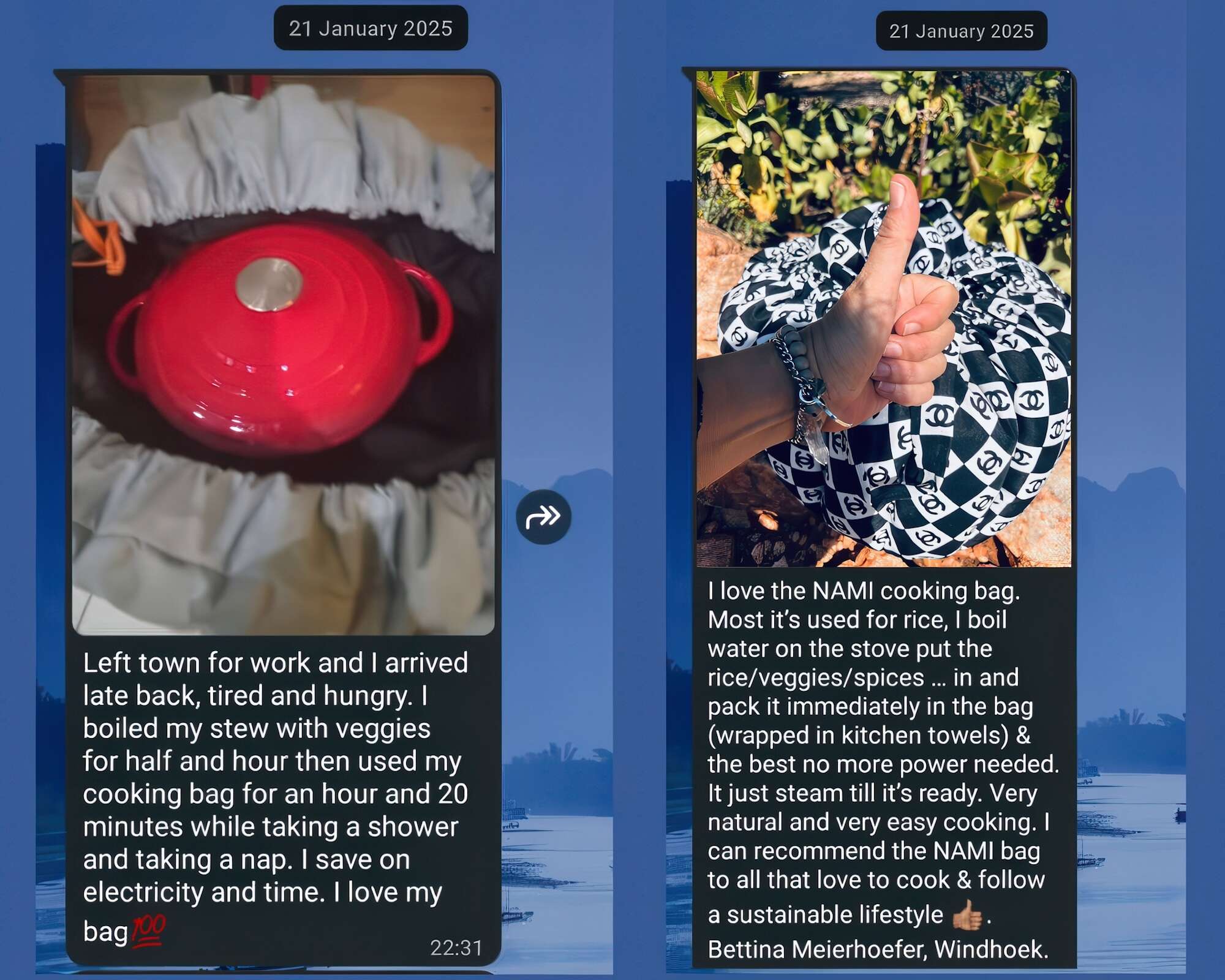
My small business in Katatura is struggling,
Amupolo explains, I do not have enough capital to spend on marketing my products.
Although she has established a website and uses social media to get the word out, few people in Namibia know about the Namibag and its benefits.
Besides generating income for her business, Amupolo has dreams of making a bigger social impact one day. I want to employ more women in my sewing shop to make Namibags and other products. I know firsthand how sewing has helped me to support my family, and I want to help other women do the same.
She is hoping to one day expand her operations in Namibia to produce Namibags for people living in both urban and rural areas and, like Wonderbag™ South Africa, start to donate these bags to those who cannot afford them. My goal as a small business owner is bigger than just making a profit for myself – I want to empower women and uplift people.
You can find Amupolo on social media (Facebook or Instagram) or visit https://nepetytrading.com to find out more.
If you enjoyed this page, then you might also like:


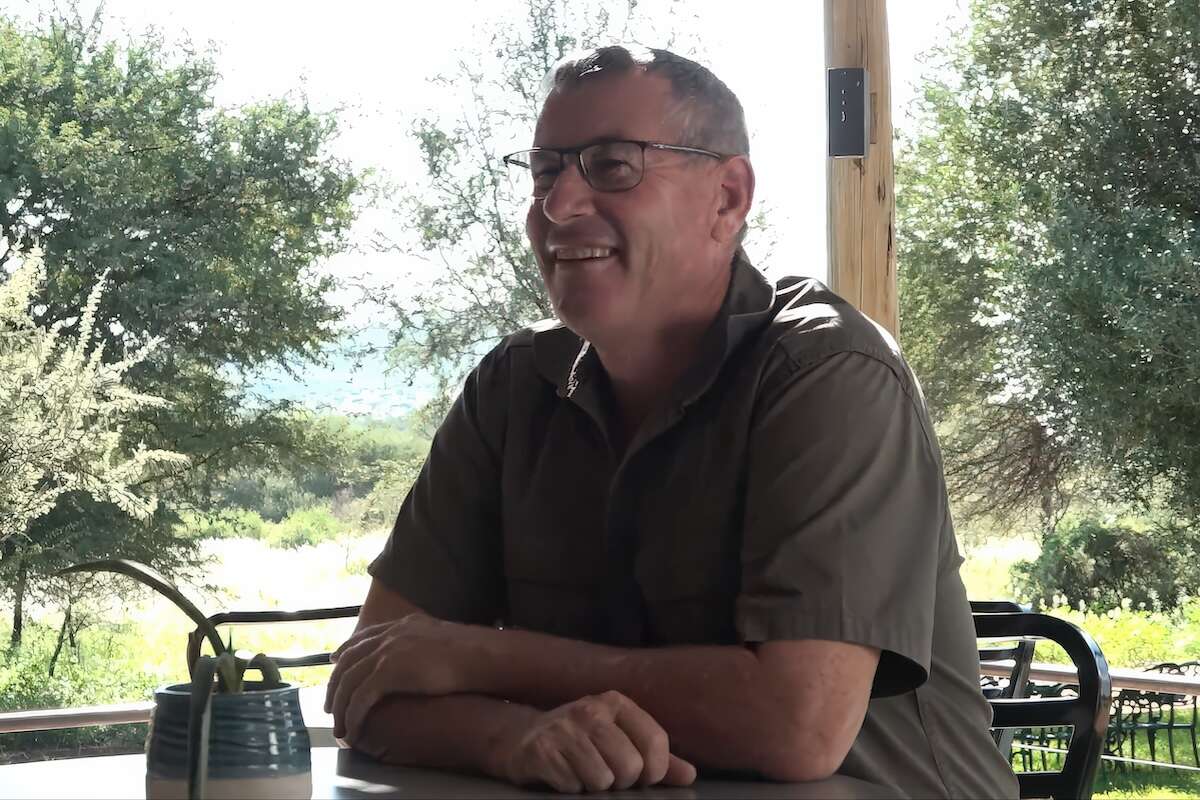
For articles on similar topics, please click one of the following options:

We use cookies to monitor site usage and to help improve it. See our Privacy Policy for details. By continuing to use the site, you acknowledge acceptance of our policy.